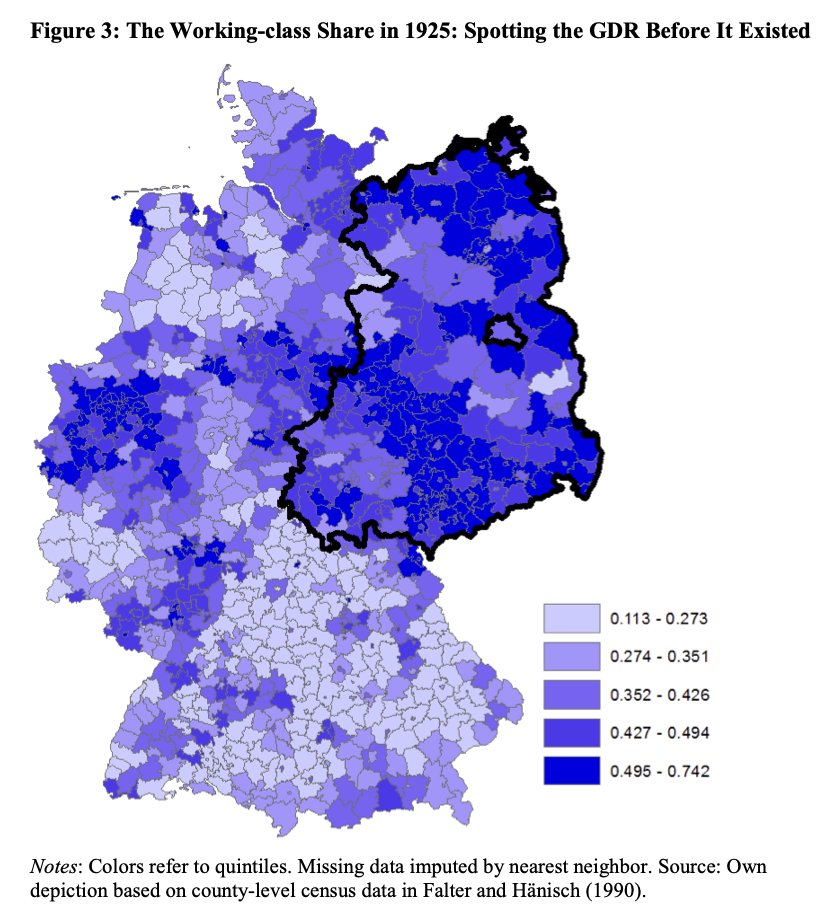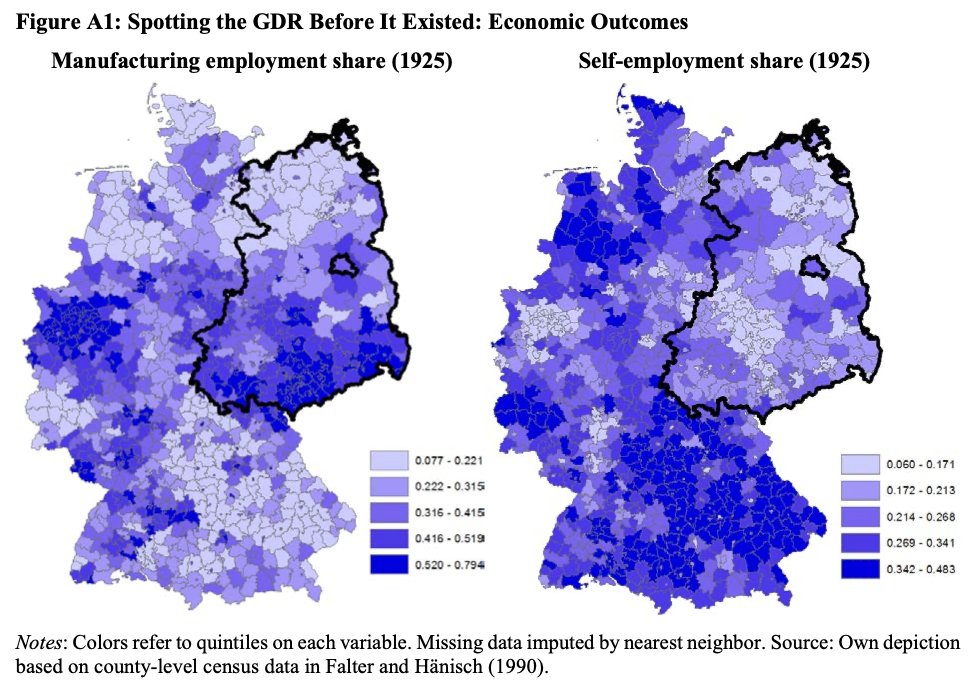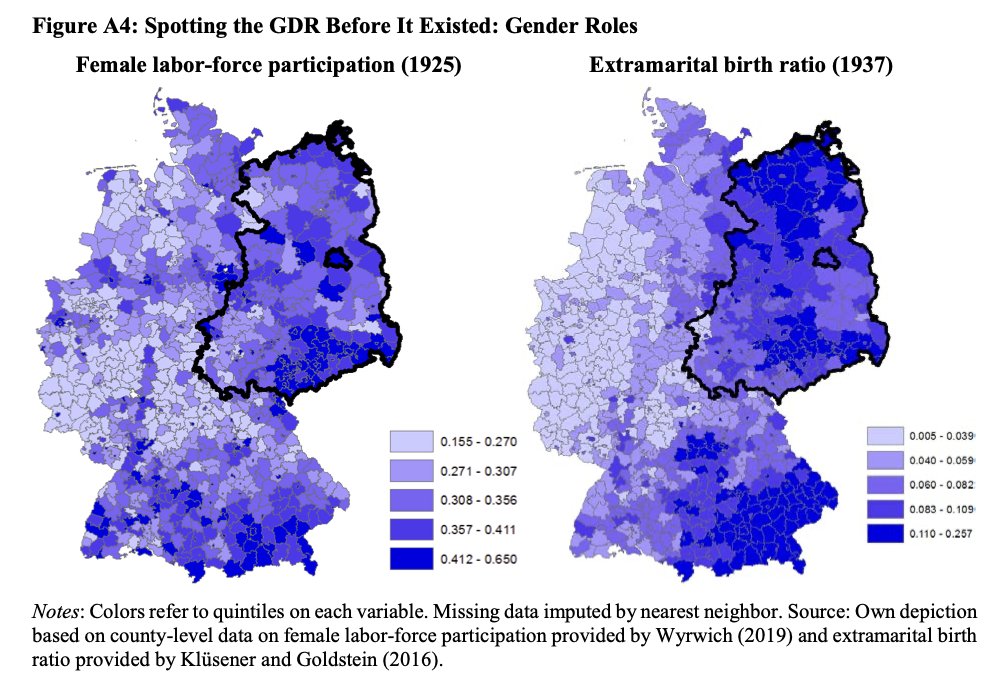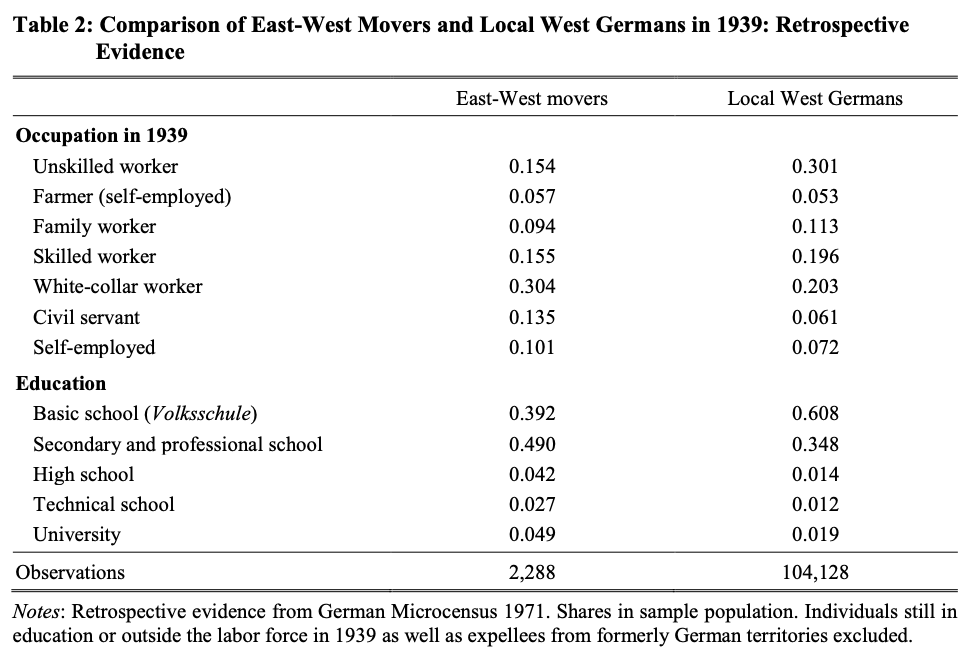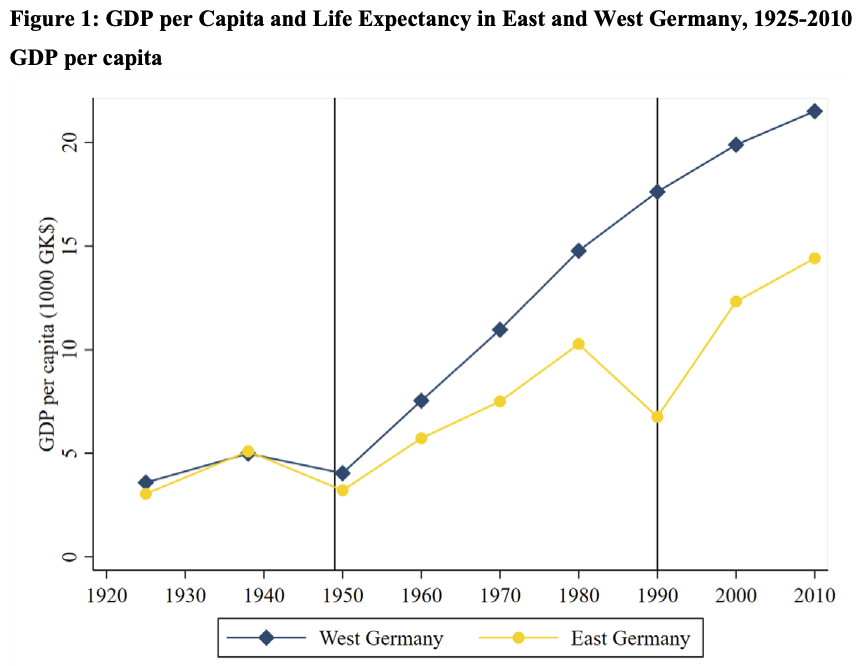German division and reunification and the “effects” of Communism
Some caveats from f/c JEP paper with @LukasMergele & Ludger Woessmann @ifo_Education
https://warwick.ac.uk/fac/soc/economics/research/centres/cage/manage/publications/461-2020_becker.pdf
Issue">https://warwick.ac.uk/fac/soc/e... #1: The GDR can be spotted before it even existed. (1/13)
Some caveats from f/c JEP paper with @LukasMergele & Ludger Woessmann @ifo_Education
https://warwick.ac.uk/fac/soc/economics/research/centres/cage/manage/publications/461-2020_becker.pdf
Issue">https://warwick.ac.uk/fac/soc/e... #1: The GDR can be spotted before it even existed. (1/13)
(6/13) These differences show up also in border samples, so geographic RDD is not necessarily a way out.
(7/13) There are further issues: #2: East and West were differentially affected by World War II and the occupying forces:
Sex ratio 1946 lower in East (but not pre-WWII).
Soviet occupation in East:
Higher losses due to dismantling of capital equipment (reparations) in East.
Sex ratio 1946 lower in East (but not pre-WWII).
Soviet occupation in East:
Higher losses due to dismantling of capital equipment (reparations) in East.
(8/13) Issue #3: selective out-migration 1945-1961
About one-fifth of East Germany’s population migrated West until 1961 (when the Berlin Wall was built).
They are a selective group of migrants and probably not big fans of Communism …
About one-fifth of East Germany’s population migrated West until 1961 (when the Berlin Wall was built).
They are a selective group of migrants and probably not big fans of Communism …
(9/13) #4: (Selective) West-to-East migration
About half a million people went from West to East before 1961.
GDR propaganda: people “not in agreement with capitalist system”.
Six out of 19 Politburo members were born in West, incl. Erich Honecker, GDR leader in 1971-1989.
About half a million people went from West to East before 1961.
GDR propaganda: people “not in agreement with capitalist system”.
Six out of 19 Politburo members were born in West, incl. Erich Honecker, GDR leader in 1971-1989.
(10/13) Take-away: German division and reunification is not a straightforward natural experiment. We should be cautious in interpreting the evidence of some (great) papers on the enduring “effects” of living under communism.
(11/13) Interesting avenue for future research: study “endogeneity of political systems” more generally. Regime changes are not random and often trigger selective migration of those who feel most strongly for or against the regime.

 Read on Twitter
Read on Twitter